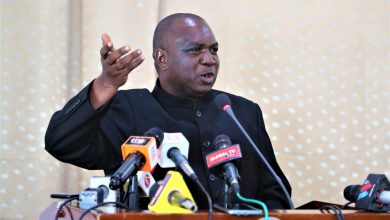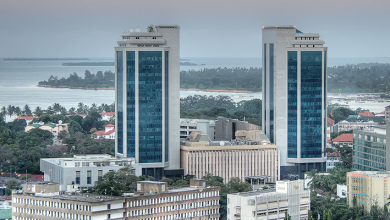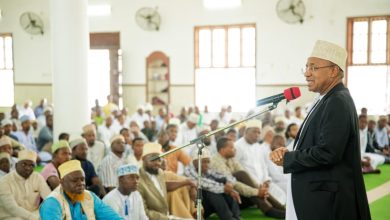Mwinyi’s legacy grows as new schools drive Zanzibar’s development
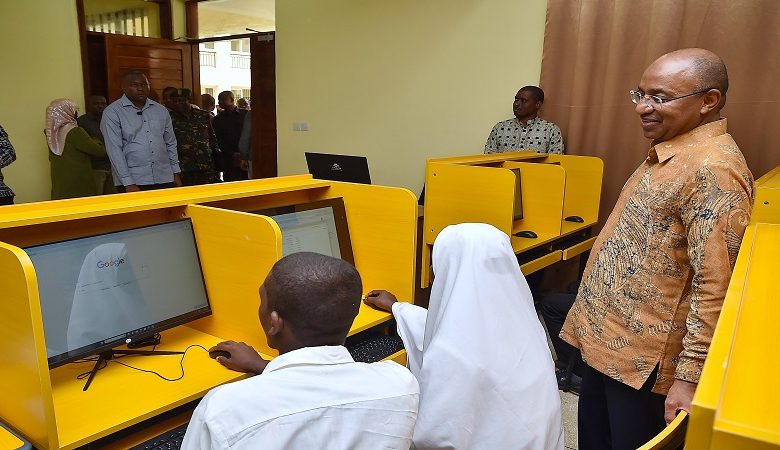
ZANZIBAR: MOST people in the Islands including parents, teachers, students and politicians are happy as Zanzibar writes the script of its education system, transforming dusty, overcrowded classrooms into vibrant learning centres and building a foundation for a knowledge-based economy.
Under the leadership of President Dr Hussein Ali Mwinyi, the Revolutionary Government of Zanzibar has made historic strides in both the scope and quality of education, culminating recently in a €79.96 million (approx. 240bn/-) loan from Deutsche Bank, secured with support from Spain’s export credit agencies and facilitated through CRDB Bank.
This landmark funding agreement, signed at the Stone Town based State House, marks a bold step toward constructing 23 new modern, double-storey secondary schools across Zanzibar, adding significant momentum to ongoing education sector reforms and infrastructure improvements.
Minister for Education Lela Mohamed Mussa credits this progress to a solid foundation laid over the past four years, during which Zanzibar’s education budget increased dramatically from 265bn/- to over 851bn/-, a significant increase of 221 per cent.
This increase is part of a larger plan to spend over 864bn/- in the fiscal year 2025/2026 on reforms in the education sector. This financial commitment has yielded tangible results.
Ninety-seven nursery and primary schools are currently undergoing renovations, with 17 already completed in the Urban West Region. Construction is underway for 21 nursery schools, 15 new primary schools and 14 new lower secondary schools.
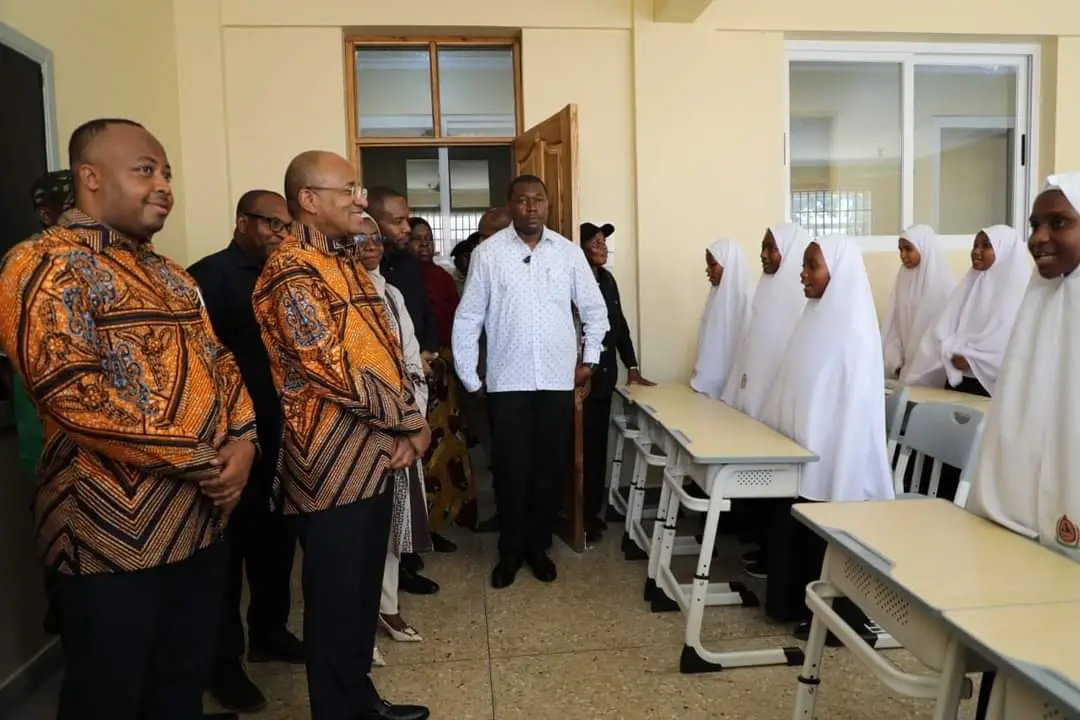
Additionally, 237 communityinitiated classrooms are being finalised with government support. Beyond infrastructure, the government has focused on quality.
Some 889 new teachers have been recruited for nursery and primary schools, the student-teacher ratio has improved across the board and the average number of students per classroom has decreased significantly, clear indicators of enhanced learning conditions.
ALSO READ: Tanzania sees success in 37th ISGE Meeting, 28th AGOTA Congress
President Mwinyi, addressing the media after the signing ceremony, emphasised that the new loan was a response to years of community calls for better educational facilities.
“For the first time, Zanzibar is securing direct foreign loans,” he noted. “This is a new approach that will allow us to access more funding quickly to implement our development projects.” For many families, the changes are more than statistics, they are lived experiences.
“As a parent, I have seen a real difference,” said Ms Maryam Haji, a mother of three from Tumbatu small Islet in Unguja North. “My children now study in classrooms with enough space, proper desks and even access to school meals. It gives me hope to see the government truly investing in their future.”
Ms Mwanasha Khamis Juma, a member of the Zanzibar House of Representatives, led her colleagues also to praise the government’s commitment.
“We have been talking about education reforms for many years, but now we’re finally seeing bold, visible action. Building modern storey schools across the islands shows the government isn’t just thinking about today’s students, it’s preparing for tomorrow’s future.”
The government has also expanded its school feeding programme, now covering 50 primary schools and all 63,099 pupils in public nursery schools, measures that are not only boosting enrolment and retention but also improving health and academic performance.
The Ministry of Education has subsidized 262 nursery and 341 primary schools and partnered with First Lady Maryam Mwinyi’s ‘Zanzibar Maisha Bora Foundation (ZMBF) to drive up enrolment rates.
As a result, over 105,000 children are now in nursery schools and over 403,000 are enrolled in primary education, a participation rate exceeding 100 per cent.
In secondary education, the government’s focus has been on access, performance and modernised learning environments. Nearly 300 new classrooms are under construction, while 14 dormitories are being built in key schools including Lumumba and Fidel Castro.
Multi-storey school buildings are also underway, part of a broader vision to elevate Zanzibar’s education infrastructure to international standards.
Already, 23 Form Six schools have received new laboratory equipment and vocational education has expanded, with 1,479 students who failed their Form Four exams being absorbed into technical training centres.
This shift toward practical and technical learning is aligned with Zanzibar’s broader development vision, preparing youth not only for academic success but also for employment and entrepreneurship.
Minister Mussa highlighted the inclusion of Fine Art, Home Economics, Computer Studies and vocational subjects such as mechanics and construction in secondary curricula.
Despite some critics raising concerns over increased borrowing, President Mwinyi reassured the public that the government has a solid repayment plan, supported by a newly established Debt Service Account that receives monthly deposits of 10 million US dollars.
Dr Mwinyi emphasised that Zanzibar’s financial position remains strong and borrowing is being strategically leveraged to fast-track development.
“Traditionally, we relied on domestic revenue and loans guaranteed by the Union Government,” he said.
“Now, with innovations like the SUKUK bond and direct foreign borrowing through CRDB, we’re expanding our capabilities without compromising fiscal responsibility.”
Indeed, the recent SUKUK bond raised 381bn/- and is now listed on the Dar es Salaam Stock Exchange (DSE), an achievement praised by CRDB Managing Director Abdulmajid Mussa Nsekela, who described Zanzibar as a model for innovation in public finance.
The loan agreement for 23 new modern schools is part of a wider development package that includes infrastructure projects like the Mangapwani port, new hospitals, road networks and water supply systems, all set for implementation over the next five years.
Deputy Minister for Finance Juma Makungu described both Dr Mwinyi and President Samia Suluhu Hassan as “visionary leaders,” whose efforts are transforming Zanzibar’s social and economic landscape. As the island region fast-tracks toward Vision 2050, education remains the cornerstone.
From improved learning spaces to innovative financing and inclusive policies, Zanzibar is not just building schools, it is building a future.


